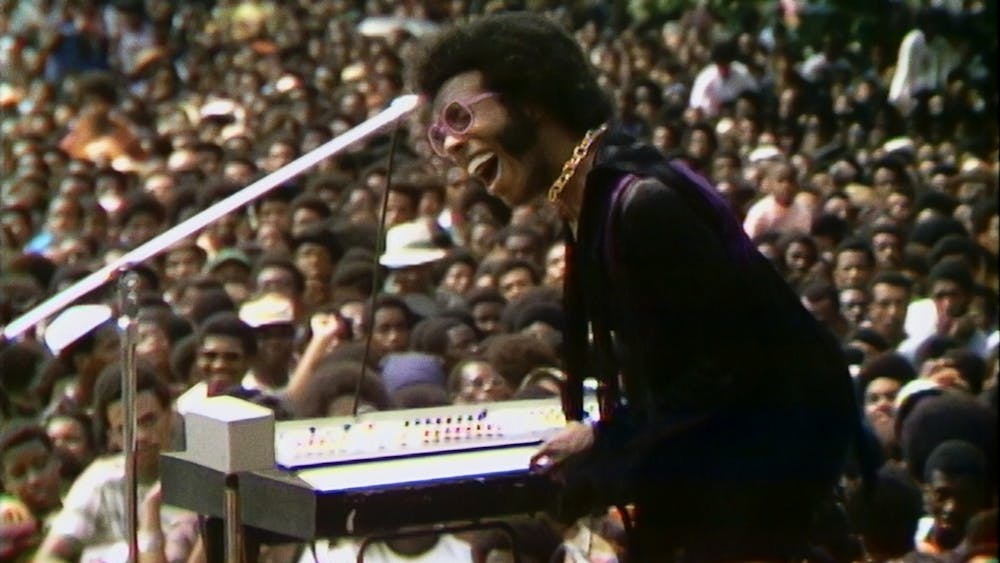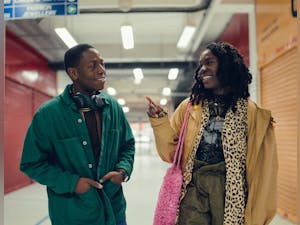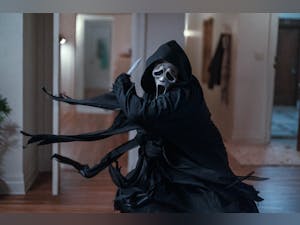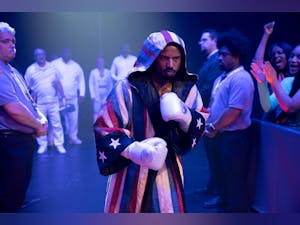From: Silver Screen
Determined to restore history, ‘Summer of Soul’ oozes with confidence and rhythm

Disc jockey, record producer, multi-instrumentalist, author and now film director — is there anything Ahmir “Questlove” Thompson can’t do?
“Summer of Soul” isn’t just Questlove’s directorial debut, but a statement to his craft and purpose. The documentary follows the Harlem Cultural Festival; a series of music festivals held in Harlem, New York in the summer of 1969 — the same summer of Woodstock — to promote Black identity, power and culture. What results is an exploration of Black music: both as an artform and as a driving force for change.
The Harlem Cultural Festival had a combined attendance of more than 300,000 people and featured some of the biggest artists at the time, including Stevie Wonder, Nina Simone and B.B. King. Nothing represented the changing sound of Black music more than this event, where gospel-inspired acts like The Edwin Hawkins Singers were followed by Latin jazz acts like Puerto Rican-New Yorker Ray Barretto.
The film truly moves rhythmically as scenes ebb and flow from concert showcase to hard-hitting social commentary. With fast-paced editing and impactful synchronization of image and sound, Questlove’s direction clearly draws from his disc jockey days because he creates the ultimate audiovisual mixtape. The words of Black social justice activists of that era effortlessly ride on synths, drums and riffs.
While music may have been the focus, it wasn’t all that was changing. Fashion in both the crowd and performers was shifting in different directions; seeing attendees stand out in colorful dashikis symbolized the reassociation towards Afrocentric identity for Black Americans. From watching the matching orange and yellow dresses of The 5th Dimension flutter as they dance in sync while Sly Stone sings his heart out in a bright purple V-neck suit, standing tall in this time capsule of a documentary.
What Questlove achieves through “Summer of Soul” is rare; the film stands for so many ideas and issues, yet it doesn’t feel muddled or inconclusive. He controls the viewer’s attention and never lingers on one idea for too long. From exploring the neighborhood of Harlem to honoring Martin Luther King Jr., conversations seamlessly transition from one topic to the next through the use of archival footage.
“Summer of Soul” is, above all, incredibly entertaining. You’ll catch yourself smiling, tapping along and feeling good throughout the entire runtime — and that’s a guarantee. Most importantly, it makes you really feel how music can bring people together. To quote festival attendee Musa Jackson: “we brought everything to the park … it was the ultimate Black barbeque.” Each shot of the crowd had children dancing, people singing along and even elderly bopping their heads around.
Conversely, the documentary’s tone was able to shift in an instant. Several attendees noted that there was nowhere to release the pain, fear and trauma that they felt as a Black person; without mental health resources, they looked to music for a means of catharsis. The straining faces of musicians as they gave their all said more than words could ever describe: heartbroken, but healing.
For such a culturally and historically relevant event, why did it take over 50 years for someone to make a film about it, especially when the documentary about “Woodstock (1970)” took a single year?
The reason: nobody thought that the Harlem Cultural Festival was worth documenting. Toward the end of the film, director and producer Hal Tulchin said that all the publicity had gone to Woodstock that year and that no one wanted to see a Black show. As the film reels sat for decades in Tulchin’s basement, there was fear that, like other elements of Black history, the Harlem Cultural Festival was being forgotten.
But along came Questlove — who had the vision to bring the festival back into the modern conversation of Black culture. It’s a lesson for the future: archive and protect Black history for the years to come. While the Harlem Cultural Festival was about music, “Summer of Soul” expands it to a greater purpose: how it represents the beauty of Black culture, from identity to expression.
Watch this film and let it engulf you in sound and image. Let it impact you and shake you to the core — let it make you tap and dance. This is Questlove’s latest composition — one that’s perfectly paced and hits just the right notes. Take a bow.
“Summer of Soul” is available to view in theaters and on Hulu starting July 2, 2021.




